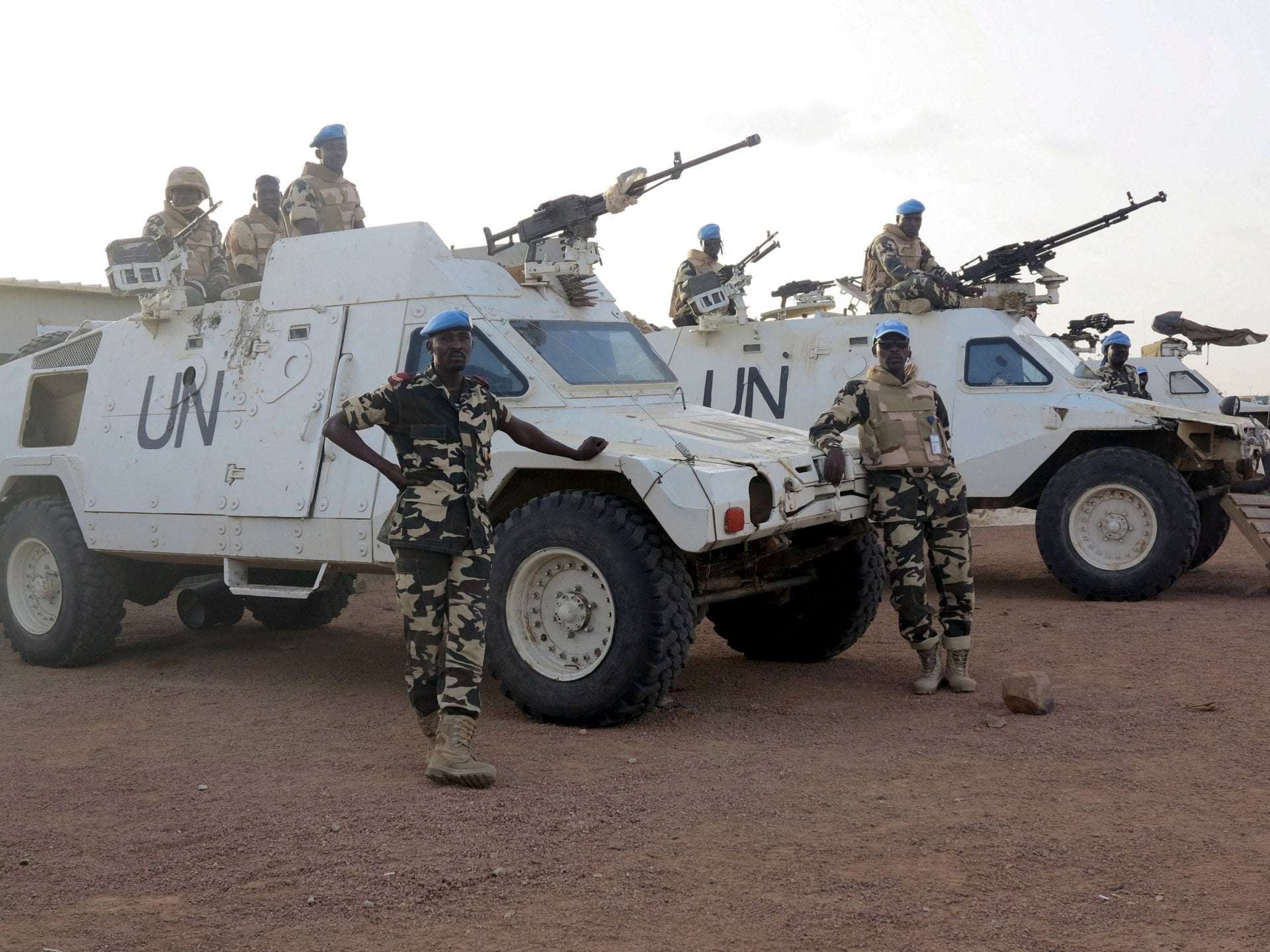Members vote unanimously to immediately wind down the mission despite fears by Western powers of new instability in the troubled nation.
The UN Security Council ended a decade-old peacekeeping mission in Mali after the ruling military demanded the withdrawal of the international force battling an armed rebellion “without delay”.
The end of the operation, known as MINUSMA, follows years of tensions and government restrictions that have hobbled peacekeeping air and ground operations since Mali teamed up with Russia’s Wagner mercenary group in 2021.
The 15-member council on Friday adopted a French-drafted resolution asking the mission to begin on Saturday “the cessation of its operations, transfer of its tasks, as well as the orderly and safe drawdown and withdrawal of its personnel, with the objective of completing this process by December 31, 2023”.
UN peacekeepers are credited with playing a vital role in protecting civilians against an armed rebellion that has killed thousands.
Some experts have feared the security situation could worsen when the mission departs, leaving Mali’s underequipped army alone with about 1,000 Wagner fighters to combat fighters who control swaths of territory in the desert north and centre.
The Security Council resolution authorised MINUSMA to – “within its immediate vicinity” – respond to imminent threats of violence to civilians and contribute to the safe, civilian-led delivery of humanitarian assistance until September 30.
It asked UN Secretary-General Antonio Guterres to work with the Malian authorities on a plan to transfer MINUSMA’s tasks and present it to the Security Council by August 15. It called on Mali to cooperate fully with the UN during MINUSMA’s withdrawal.
When asking for MINUSMA to leave, Malian Foreign Minister Abdoulaye Diop told the Security Council earlier this month there was a “crisis of confidence” between the UN operation and the Malian authorities.
Until December 31, MINUSMA is also authorised to provide security for UN personnel, facilities, convoys, installations and equipment and associated personnel, and execute operations to extract UN personnel and humanitarian workers in danger and provide medical evacuations.
The United States deputy ambassador, Jeffrey DeLaurentis, expressed regret at the military government’s decision to abandon the UN mission. He also said “some domestic actors” in Mali are calling for harassment of peacekeepers and urged the mission to ensure the safe and orderly transfer of UN facilities and equipment to UN-designated places.
“The UN has a responsibility to minimise the risk that its assets fall into the hands of those looking to destabilise Mali, or bring harm to its people, including violent extremist organisations and the Wagner Group,” he said.
The UK’s UN Ambassador Barbara Woodward expressed regret that Mali wanted the peacekeepers to leave at a time when the region is “facing increasing instability and humanitarian needs”.
Meanwhile, Russia’s Foreign Minister Sergey Lavrov “renewed his country’s unstinting support towards Mali in the military-technical field as well as for humanitarian and economic assistance”.
Mali has struggled to stem an armed rebellion that took root following an uprising in 2012. The UN Security Council deployed MINUSMA in 2013 to support foreign and local efforts to restore stability.
Frustrations about the growing insecurity spurred two coups in Mali in 2020 and 2021.

Winstonoceaniasmith on July 2nd, 2023 at 22:19 UTC »
This will only bring bad news to Mali, some if the principal rebel groups were only agreeing to holding the truce because of the UN mission plus the economy on northern Mali depended to a significant deal on the employment opportunities brought by caring for and supplying the UN bases.
No_Hyena_6682 on July 2nd, 2023 at 20:55 UTC »
Does anyone who watches the Sahel closely have an idea of what exactly this Western retreat from the region is all about? Burkina Faso recently gave France the boot, so did Mali, Chad expelled their Germany ambassador. And I think I may be leaving some similar incidents out, I mostly just watch liveuamap but I've noticed quite a few stories like this in the past 6 months or so.
I think West African hostility to Western and particularly French presence in the region should surprise exactly nobody, from what I've seen francafrique has been extremely exploitative. Caspian Report has done some coverage of that that seems surprisingly good. So the hostility I get but what I'm confused about is this:
Why are African states picking this moment to expel Western forces? Why did it expand beyond whichever of these states was the first to do it? And why is there not more resistance on the part of France? From what I understand, France has considered West Africa a vital strategic interest ever since decolonization and has never wavered in that, so why back down now? Especially with Russia establishing themselves more firmly in the region at a moment when tensions between Russia and the West are at a post-Cold War high, a withdrawal from West Africa seems totally destructive to perceived French interests and seems out of step with NATO policy in Eastern Europe. I know France has taken a softer line than the rest of NATO on Ukraine but it still seems dissonant. I guess it's early to say maybe, we could see a wave of coups or something like that and ofc this isn't the 19th century where you can just annex a protectorate when it tells you to withdraw your troops, not without a serious blow to your global image. But US troops have been repeatedly voted out of Iraq and that hasn't changed anything so idk, the whole situation is confusing for me.
Burningphoenix7472 on July 2nd, 2023 at 20:10 UTC »
After the Malian junta demanded the UN mission leave, the council has voted to comply. They will aim to withdraw entirely by the end of the year.
This could cause major problems as the peacekeepers were guarding many northern cities, gave medical aid to the military and civilians, and were a mediator in negotiations between the separatist rebels and the government. The Azawad rebels predict the peace may fall apart.